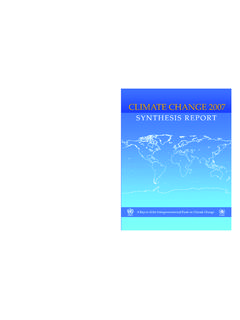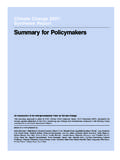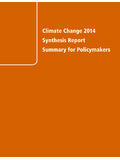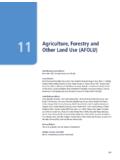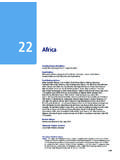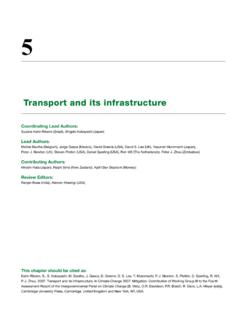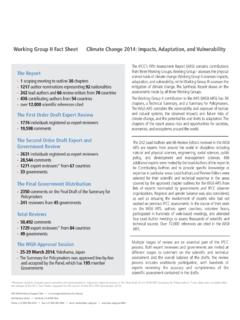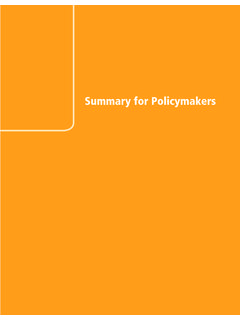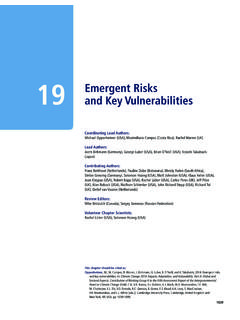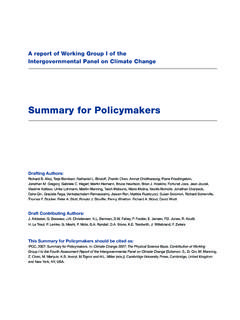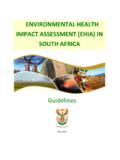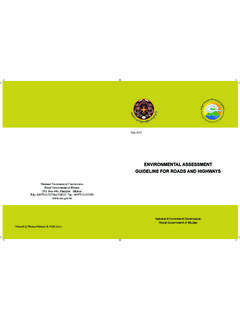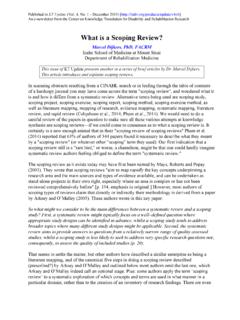Transcription of Climate Change 2014 Mitigation of Climate Change …
1 Climate Change 2014 . Mitigation of Climate Change Working Group III Contribution to the Fifth assessment report of the Intergovernmental Panel on Climate Change Edited by Ottmar Edenhofer Ram n Pichs-Madruga Youba Sokona Working Group III Co-Chair Working Group III Co-Chair Working Group III Co-Chair Potsdam Institute for Centro de Investigaciones de la South Centre Climate Impact Research Econom a Mundial Jan C. Minx Ellie Farahani Susanne Kadner Kristin Seyboth Head of TSU Head of Operations Head of Science Deputy Head of Science Anna Adler Ina Baum Steffen Brunner Team Assistant Project Officer Senior Economist Patrick Eickemeier Benjamin Kriemann Jussi Savolainen Scientific Editor IT Officer Web Manager Steffen Schl mer Christoph von Stechow Timm Zwickel Scientist Scientist Senior Scientist Working Group III Technical Support Unit Cambridge University Press 32 Avenue of the Americas, New York, NY 10013-2473, USA.
2 Cambridge University Press is part of the University of Cambridge. It furthers the University's mission by disseminating knowledge in the pursuit of education, learning and research at the highest international levels of excellence. Information on this title: / 9781107654815. Intergovernmental Panel on Climate Change 2014 . This publication is in copyright. Subject to statutory exception and to the provisions of relevant collective licensing agreements, no reproduction of any part may take place without the written permission of Cambridge University Press. First published 2014 . Printed in the United States of America A catalog record for this publication is available from the British Libary. ISBN 978-1-107-05821-7 hardback ISBN 978-1-107-65481-5 paperback Cambridge University Press has no responsibility for the persistence or accuracy of URLs for external or third-party Internet Web sites referred to in this publication and does not guarantee that any content on such Web sites is, or will remain, accurate or appropriate.
3 Please use the following reference to the whole report : IPCC, 2014 : Climate Change 2014 : Mitigation of Climate Change . Contribution of Working Group III to the Fifth assessment report of the Intergovernmental Panel on Climate Change [Edenhofer, O., R. Pichs-Madruga, Y. Sokona, E. Farahani, S. Kadner, K. Seyboth, A. Adler, I. Baum, S. Brunner, P. Eickemeier, B. Kriemann, J. Savolainen, S. Schl mer, C. von Stechow, T. Zwickel and Minx (eds.)]. Cambridge University Press, Cambridge, United Kingdom and New York, NY, USA. Cover photo: Shanghai, China, aerial view Ocean / Corbis Foreword, Preface, Dedication and In Memoriam Foreword Foreword Climate Change 2014 : Mitigation of Climate Change is the third part We express our deep gratitude to all authors, review editors and expert Foreword of the Fifth assessment report (AR5) of the Intergovernmental Panel reviewers for devoting their knowledge, expertise and time.
4 We would on Climate Change (IPCC) Climate Change 2013 / 2014 and was like to thank the staff of the Working Group III Technical Support Unit prepared by its Working Group III. The volume provides a comprehen- and the IPCC Secretariat for their dedication. sive and transparent assessment of relevant options for mitigating Climate Change through limiting or preventing greenhouse gas (GHG) We are also thankful to the governments that supported their scien- emissions, as well as activities that reduce their concentrations in the tists' participation in developing this report and that contributed to atmosphere. the IPCC Trust Fund to provide for the essential participation of experts from developing countries and countries with economies in transition. This report highlights that despite a growing number of Mitigation policies, GHG emission growth has accelerated over the last decade.
5 We would like to express our appreciation to the government of The evidence from hundreds of new Mitigation scenarios suggests Italy for hosting the scoping meeting for the IPCC's Fifth assessment that stabilizing temperature increase within the 21st century requires report , to the governments of Republic of Korea, New Zealand and a fundamental departure from business-as-usual. At the same time, it Ethiopia as well as the University of Vigo and the Economics for Energy shows that a variety of emission pathways exists where the tempera- Research Centre in Spain for hosting drafting sessions of the Working ture increase can be limited to below 2 C relative to pre-industrial Group III contribution and to the government of Germany for host- level. But this goal is associated with considerable technological, eco- ing the Twelfth Session of Working Group III in Berlin for approval of nomic and institutional challenges.
6 A delay in Mitigation efforts or the the Working Group III report . In addition, we would like to thank the limited availability of low carbon technologies further increases these governments of India, Peru, Ghana, the United States and Germany for challenges. Less ambitious Mitigation goals such as C or 3 C hosting the AR5 Expert meetings in Calcutta, Lima, Accra, Washington involve similar challenges, but on a slower timescale. Complementing D. C., and Potsdam, respectively. The generous financial support by the these insights, the report provides a comprehensive assessment of the government of Germany, and the logistical support by the Potsdam technical and behavioural Mitigation options available in the energy, Institute for Climate Impact Research (Germany), enabled the effec- transport, buildings, industry and land-use sectors and evaluates policy tive operation of the Working Group III Technical Support Unit.
7 This is options across governance levels from the local to the international gratefully acknowledged. scale. We would particularly like to thank Dr. Rajendra Pachauri, Chairman The findings in this report have considerably enhanced our understand- of the IPCC, for his direction and guidance of the IPCC and we express ing of the range of Mitigation pathways available and their underlying our deep gratitude to Professor Ottmar Edenhofer, Dr. Ramon Pichs- technological, economic and institutional requirements. The timing of Madruga, and Dr. Youba Sokona, the Co-Chairs of Working Group III for this report is thus critical, as it can provide crucial information for the their tireless leadership throughout the development and production negotiators responsible for concluding a new agreement under the of this report .
8 United Nations Framework Convention on Climate Change in 2015. The report therefore demands the urgent attention of both policymak- ers and the general public. As an intergovernmental body jointly established in 1988 by the World Meteorological Organization (WMO) and the United Nations Environment Programme (UNEP), the IPCC has successfully provided M. Jarraud policymakers with the most authoritative and objective scientific and Secretary-General technical assessments, which are clearly policy relevant without being World Meteorological Organization policy prescriptive. Beginning in 1990, this series of IPCC assessment Reports, Special Reports, Technical Papers, Methodology Reports and other products have become standard works of reference. This Working Group III assessment was made possible thanks to the commitment and dedication of many hundreds of experts, represent- ing a wide range of regions and scientific disciplines.
9 WMO and UNEP A. Steiner are proud that so many of the experts belong to their communities and Executive Director networks. United Nations Environment Programme vii Preface Preface The Working Group III contribution to the Fifth assessment report weighing of other social priorities and the policies for achieving the (AR5) of the Intergovernmental Panel on Climate Change (IPCC) pro- goal. Facts are often inextricably interlinked with values and there is vides a comprehensive and transparent assessment of the scientific lit- no purely scientific resolution of value dissent. What an assessment erature on Climate Change Mitigation . It builds upon the Working Group can do to support a rational public debate about value conflicts is to III contribution to the IPCC's Fourth assessment report (AR4) in 2007, make implicit value judgments and ethical viewpoints as transparent the Special report on Renewable Energy Sources and Climate Change as possible.
10 Moreover, controversial policy goals and related ethical Mitigation (SRREN) in 2011 and previous reports and incorporates standpoints should be discussed in the context of the required means subsequent new findings and research. The report assesses Mitigation to reach these goals, in particular their possible consequences and options at different levels of governance and in different economic sec- side-effects. The potential for adverse side-effects of Mitigation actions tors. It evaluates the societal implications of different Mitigation poli- therefore requires an iterative assessment approach. Preface cies, but does not recommend any particular option for Mitigation . Multiple objectives in the context of sustainable development and equity: A comprehensive exploration of the solution space in the Approach to the assessment field of Climate Change Mitigation recognizes that Mitigation itself will only be one objective among others for decision makers.
